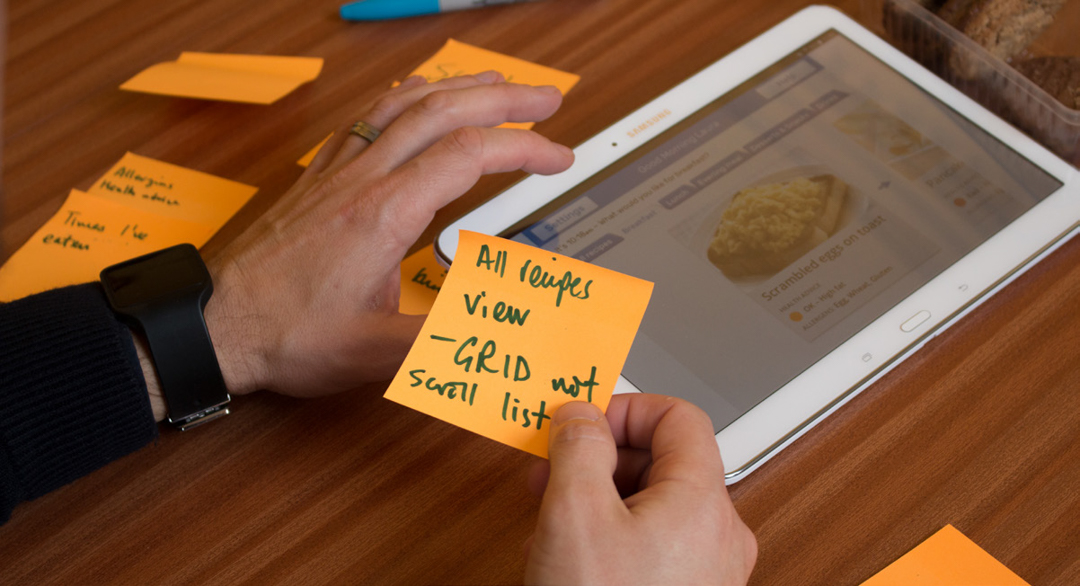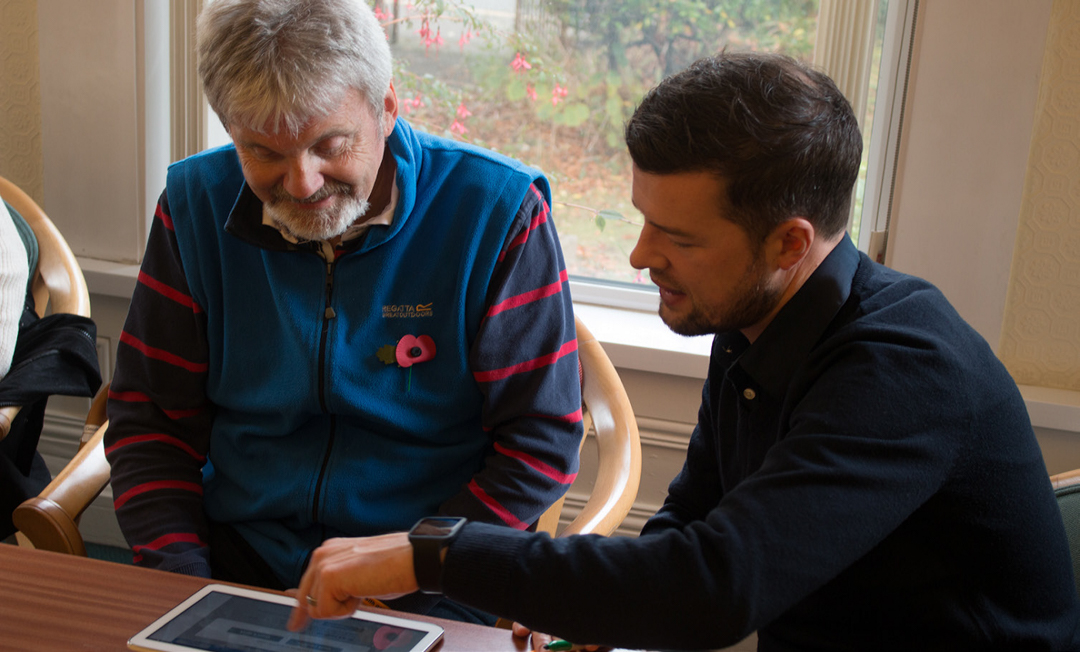Kitchen Sense
Using the Internet of Things, sensor technology and biometric bands to help people with acquired brain injuries regain their independence, one meal at a time.
The Challenge
Injuries can really hinder a person’s confidence and limit their independence. Debilitating by nature, an acquired brain injury can change a person’s life in mere moments.
Over 1 million people living in the UK either have, or have previously suffered, some form of acquired brain injury. However, supporting people on their journey to recovery is not always easy. It takes a great deal of time for a patient to become fully rehabilitated and grow their confidence in all areas of life.
Occupational therapists work incredibly hard to achieve this. However, with a shortage of staff and increased pressures, they cannot dedicate the necessary time they need to complete rehabilitation. This is frustrating and upsetting for many people with an acquired brain injury and their therapists.
Cooking is a core part of scaffold rehabilitation, where people regain their autonomy through re-learning key daily tasks. We knew technology could support people in the kitchen and enhance their rehabilitation. We started by listening.
Listening
We started by connecting with The North Wales Brain Injury Service (NWBIS). A small, tight-knit unit, their occupational therapists work hard on a daily basis to support individuals with acquired brain injuries to thrive in their own homes.
As we listened to their stories, it became obvious how many challenges there were to help people in their daily lives. Whilst cooking was a part of the rehabilitation service they offered, tasks in the kitchen, once the session finished, cooking remained a problem. This was frustrating not only for the occupational therapists, knowing that cooking was a hurdle to rehabilitation, but also for the patients themselves.
Sharing their stories with us, a great number of our co-creators told us that they enjoyed cooking - some even saw it as a passion and a hobby. However, because of their injuries, our talented cooks would often feel ‘defeated’ by the impact of their injuries. They would often miss steps in a recipe, forget ingredients, or even double the quantity, making too much of what they intended to cook.
Personal safety was an urgent issue. In some cases, people would even forget that they were cooking in the first place, leading them to leave the kitchen and do something else. These were issues that mattered, and they needed a solution. It was time to think.
The most important thing for me is safety in the kitchen. There have been a few occasions where I have nearly set things on fire. I boil things until the pan nearly ends up on fire.

Thinking
The input of our co-creators was vital to create something of value to people living with an acquired brain injury. It was important that we created something that felt familiar to our end users, something that they could trust. Our solution needed to be easy to understand, portable and accessible for people of all abilities.
Modern technology was not a barrier for our co-creators. When we asked therapists and people with brain injuries how familiar they were with technology, a large number told us that they confident. 80% were already using an internet connection at home and 50% had their own smartphones. We knew, then, that mobile, interactive apps would help.
Breaking down the cognitive process behind cooking, we had already been told that individuals with brain injuries ‘needed a visual process to cook’, so we employed a visual structure to our design. We could then understand a little bit more about what people had been eating, which recipes they had succeeded with, and which were the tasks that people repeatedly found tricky.
To achieve this, we needed active data; we wondered if wearable technology could help. Equipped with sensors and an LED screen, bands with biometric sensors could be used to retrieve reliable insights into which problems people were encountering in the kitchen, and why. The user would wear this on their wrist at all times. After much thought, we realised that this was an idea that made sense. This led us to action – and to the creation of our Internet of Things mobile app, Kitchen Sense.
Involving end users in our co-creation sessions is so important. With their input driving the innovation we can be confident it has a lasting positive impact on people's lives. That's what it's all about.
The app is fabulous, I particularly appreciate being able to go back during the cooking process in order to make sure that I completed the previous steps.
Doing
We delivered the prototype packages directly to our users. These packages contained sensors, biometric bands, tablets with pre-installed versions of Kitchen Sense and, for the therapists, a dashboard. This ensured that therapists and individuals alike were ready to use the IoT solution.
Users place the sensors on their wrist and access their application whenever they attempted a new meal, Kitchen Sense then guides them through the culinary process step by step, giving them simple instructions such as which tools they should use, which quantities to prepare and more. Our users work on their chosen meal, and the information gathered is relayed back over to the therapist’s dashboard.
We also included bespoke safety features, including physical and audio prompts, to guide individuals through the cooking process and redirect them back into the kitchen should they leave.
Kitchen Sense collects a range of biometric data, recorded both through the sensor and individual user journeys. The data collected from patients with acquired brain injuries would then be transferred over to the occupational therapist’s dashboard on their device. This gives professionals a clear idea of which stages of rehabilitation were going well, and which tasks people find tricky.
Numerous individuals piloting Kitchen Sense enjoyed a distinct improvement in self-esteem. Individuals with comorbid dietary conditions, such as diabetes, saw a marked improvement in their overall health. It also has demonstrable benefits for individuals facing other neurodiverse conditions, such as autism, learning disabilities and dementia.
